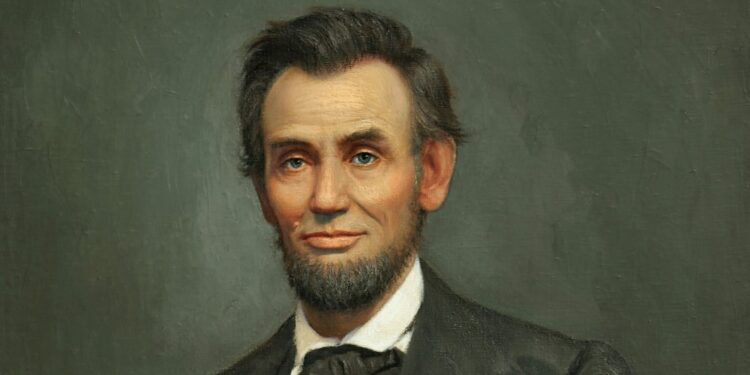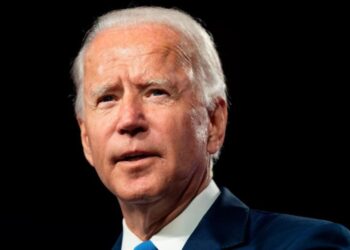In political studies, surveys have been conducted in order to construct historical rankings of the success of individuals who have served as the presidents of the United States. Ranking systems of U.S. presidents are usually based on surveys of academic historians and political scientists or popular opinion. The rankings focus on presidential achievements, leadership qualities, failures, and faults.
Here are the top 10 best U.S. presidents in history.
1. Abraham Lincoln
Presidential term: 1861-1865
Abraham Lincoln’s first-place standing is due to high ratings across the board, but historians hold him in highest esteem for crisis leadership. He led the country through one of its most trying periods, the Civil War, and in 1863 signed the Emancipation Proclamation freeing the slaves.
2. George Washington
Presidential term: 1789-1797
The nation’s first president ranked above all others for moral authority, economic management, and overall performance within the context of his times. George Washington fought hard for the Constitution, feeling that the Articles of Confederation were not functioning well for the country. He was disappointed to see the country becoming more politically divided toward the end of his first term, and set a precedent by choosing to retire after his second.
3. Franklin D. Roosevelt
Presidential term: 1933-1945
Historians laud Franklin D. Roosevelt for his skills at public persuasion, ranking him first among all presidents in that category. He also ranked first in handling of foreign relations. FDR assumed the presidency during the worst of the Great Depression, but assured the American people: “The only thing we have to fear is fear itself.” He also led the U.S. through the perilous years of World War II.
4. Theodore Roosevelt
Presidential term: 1901-1909
Theodore Roosevelt ranked highly for public persuasion. Just 42 when he became the youngest president in the nation’s history, he had the excitement and energy to convince Congress to pass progressive reforms and a strong foreign policy – exemplified by his motto, “Speak softly and carry a big stick.” An avid outdoorsman, he oversaw the expansion of America’s national parks.
5. Dwight D. Eisenhower
Presidential term: 1953-1961
Dwight D. Eisenhoweris ranked highly largely due to an increasingly favorable view of his crisis leadership. Eisenhower’s energies were largely devoted to easing the tensions of the Cold War. He obtained a truce after years of war in Korea, desegregated the U.S. armed forces, and sent federal troops to enforce a court order desegregating public schools in Little Rock, Arkansas.
6. Harry Truman
Presidential term: 1945-1953
Harry Truman wins praise from historians for his crisis leadership. After V-E Day, when Japan refused to surrender, he ordered atomic bombs to be dropped on Hiroshima and Nagasaki, finally ending World War II in the Pacific. Shortly thereafter, Truman watched the signing of the charter of the United Nations, established to preserve peace.
7. Thomas Jefferson
Presidential term: 1801-1809
Thomas Jefferson is ranked highest for his vision and agenda setting. He was the the principal author of the Declaration of Independence, and during his presidency he acquired the Louisiana Territory, vastly expanding the size of the country, and slashed the national debt by a third.
8. John F. Kennedy
Presidential term: 1961-1963
Historians credit John F. Kennedy most for his skills in public persuasion and his vision. He also rates well for crisis management and handling international relations. He stood up to the Soviets and successfully defused the Cuban Missile Crisis, vowed to put a man on the moon, and pushed for progress on civil rights. He was assassinated after barely a thousand days in office.
9. Ronald Reagan
Presidential term: 1981-1989
Ronald Reagan is ranked highly largely due to positive views of his economic management and crisis leadership. He also scored extremely highly for public persuasion skills and setting the national agenda. By working with Congress, Reagan was able to pass legislation that sped economic growth and strengthened national defense, advancing his vision of “peace through strength” in the years leading up to the end of the Cold War.
10. Lyndon Johnson
Presidential term: 1963-1969
Lyndon Johnson tops the charts for his efforts in pursuing equal justice for all Americans. Taking office after John F. Kennedy’s assassination, Johnson secured enactment of a landmark civil rights bill. He urged the country “to build a great society, a place where the meaning of man’s life matches the marvels of man’s labor,” which became his agenda, resulting in Medicare for the elderly, increased aid for education and anti-poverty programs.


































































































































































































